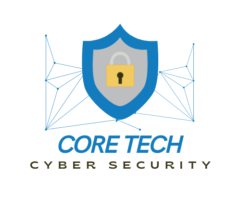In the rapidly evolving field of cybersecurity, having the right certifications can significantly enhance your career prospects and professional development. As 2024 unfolds, numerous certifications stand out for their value in boosting your credentials and expertise in cybersecurity. Here’s a look at some of the top cybersecurity certifications to consider this year:
1. Certified Information Systems Security Professional (CISSP)
The Certified Information Systems Security Professional (CISSP) is one of the most respected certifications in the cybersecurity industry. Offered by (ISC)², it demonstrates your ability to design, implement, and manage a best-in-class cybersecurity program.
Key Features:
- Broad coverage of cybersecurity domains, including security and risk management, asset security, and software development security.
- Ideal for experienced security practitioners, managers, and executives.
- Validates a deep understanding of security concepts and practices.
Achieve the CISSP certification to showcase your expertise in comprehensive cybersecurity management and strategy.
2. Certified Ethical Hacker (CEH)
The Certified Ethical Hacker (CEH), provided by the EC-Council, is designed to validate your skills in ethical hacking and penetration testing. It equips you with the knowledge to identify and address vulnerabilities like a hacker would, but for defensive purposes.
Key Features:
- Hands-on experience with real-world hacking tools and techniques.
- Focuses on penetration testing, network scanning, and system hacking.
- Suitable for security professionals and those aiming to become ethical hackers.
Opt for CEH to gain practical skills in ethical hacking and improve your ability to safeguard networks against cyber threats.
3. CompTIA Security+
CompTIA Security+ is a widely recognized entry-level certification that provides foundational knowledge of cybersecurity concepts. It’s ideal for those starting their career in cybersecurity or seeking a broad understanding of security principles.
Key Features:
- Covers essential topics such as network security, compliance, and operational security.
- Emphasizes practical skills and foundational knowledge.
- Suitable for IT professionals and those new to cybersecurity.
Earn CompTIA Security+ to establish a solid foundation in cybersecurity and demonstrate your ability to manage and mitigate security risks.
4. Certified Information Security Manager (CISM)
The Certified Information Security Manager (CISM), offered by ISACA, focuses on managing and overseeing an enterprise’s information security program. It’s geared towards individuals in managerial or strategic roles within cybersecurity.
Key Features:
- Emphasizes security governance, risk management, and incident response.
- Ideal for professionals in management or those aspiring to security leadership roles.
- Validates your ability to manage and align information security with business objectives.
Pursue the CISM certification to advance your career into management and strategic roles within cybersecurity.
5. Certified Cloud Security Professional (CCSP)
With the growing reliance on cloud computing, the Certified Cloud Security Professional (CCSP), also from (ISC)², focuses on cloud security expertise. It’s essential for professionals working with cloud technologies and services.
Key Features:
- Covers cloud architecture, governance, and risk management.
- Provides expertise in securing cloud environments and services.
- Ideal for those working with cloud technologies or managing cloud-based security.
Achieve the CCSP certification to demonstrate your proficiency in cloud security and enhance your ability to protect cloud-based systems.
6. Offensive Security Certified Professional (OSCP)
The Offensive Security Certified Professional (OSCP) is a highly respected certification known for its rigorous hands-on exam. It focuses on advanced penetration testing and offensive security techniques.
Key Features:
- Hands-on exam requiring practical penetration testing skills.
- Emphasizes real-world application and problem-solving.
- Suitable for experienced penetration testers and security professionals.
Earn the OSCP to prove your advanced skills in penetration testing and offensive security tactics.
Conclusion
As the cybersecurity landscape continues to evolve, obtaining the right certifications can propel your career forward and validate your expertise in this critical field. Whether you’re looking to enhance your foundational knowledge with CompTIA Security+, dive into ethical hacking with CEH, or advance into management with CISM, these certifications can provide a significant boost to your professional credentials.
